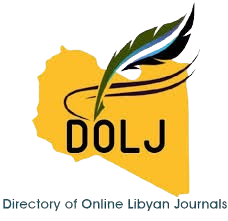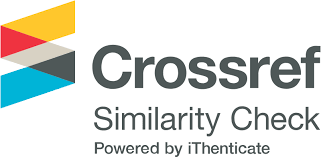Wireless Mesh Networks (WMN) in IoT Networks
DOI:
https://doi.org/10.64516/de33z795Keywords:
Internet of Things (IoT), Wireless Mesh Networks (WMNs), sensorsAbstract
The Internet of Things (IoT) is one of the most common applications in both industrial operations and home automation, as well as in the world of network engineering. On the other hand, wireless mesh networks (WMNs) are a networking technology that has been discussed for decades but has not been widely used. They can make a significant difference when it comes to networking in today's IoT world. This paper is a brief introduction to WMNs in IoT networks, mentioning the advantages and disadvantages of using WMNs in IoT networks, and highlighting the main challenges these networks face.
References
1. J. Okin, The Internet Revolution: The Not-for-Dummies Guide to the History, Technology, and Use of the Internet, 1 ed., Winter Harbor, ME: Ironbound Press, 2005.
2. P. M. M.-S. ,. a. L. E. M. Elizabeth M. Royer, “An Analysis of the Optimum Node Density for Ad hoc Mobile Networks,” 2001
3. V. Truong, A. Nayyar, and S. A. Lone, “System performance of wireless sensor network using LoRa–Zigbee hybrid communication,” Computers, Materials & Continua, vol. 68, no. 2, pp. 1615–1635, 2021.
4. A. M. Khedr, W. Osamy, A. Salim, and A.-A. Salem, “Privacy preserving data mining approach for IoT based WSN in smart city,” International Journal of Advanced Computer Science and Applications, vol. 10, no. 8, pp. 556–563, 2019.
5. V. K. Verma, S. Singh, and N. P. Pathak, “Analytical event based investigations over delphi random generator distributions for data dissemination routing protocols in highly dense wireless sensor network,” Wireless Personal Communications, vol. 87, no. 4, pp. 1209–1222, Apr. 2016.
6. V. K. Verma, S. Singh, and N. P. Pathak, “Comprehensive event based estimation of sensor node distribution strategies using classical flooding routing protocol in wireless sensor networks,” Wireless Networks, vol. 20, no. 8, pp. 2349–2357, Nov. 2014.
7. K. Haseeb, I. U. Din, A. Almogren, and N. Islam, “An energy efficient and secure IoT-based WSN framework: an application to smart agriculture,” Sensors, vol. 20, no. 7, p. 2081, Apr. 2020.
8. V. K. Verma, K. Ntalianis, S. Singh, and N. P. Pathak, “Data proliferation based estimations over distribution factor in heterogeneous wireless sensor networks,” Computer Communications, vol. 124, no. June, pp. 111–118, Jun. 2018.
9. G. Eason, B. Noble, and I. N. Sneddon, “On certain integrals of Lipschitz-Hankel type involving products of Bessel functions,” Phil. Trans. Roy. Soc. London, vol. A247, pp. 529–551, April 1955.
10. J. Clerk Maxwell, A Treatise on Electricity and Magnetism, 3rd ed., vol. 2. Oxford: Clarendon, 1892, pp.68–73.
11. Y. Yorozu, M. Hirano, K. Oka, and Y. Tagawa, “Electron spectroscopy studies on magneto-optical media and plastic substrate interface,” 9th Annual Conf. Magnetics, Japan, 1982.
Downloads
Published
Issue
Section
License
Copyright (c) 2024 Salih Saad Qarash (Author)

This work is licensed under a Creative Commons Attribution 4.0 International License.













